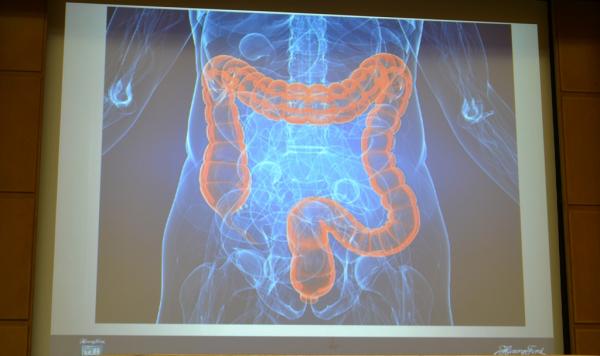Colorectal cancer (CRC) is the second leading cause of cancer-related deaths in the US, accounting for nearly 52,000 deaths in 2014 alone. Screening for CRC can be effective in finding early changes in the colon and rectum, and early treatment diminishes the mortality risk. Yet many people who are eligible for screening (e.g. those aged 50 and over, as well as those with family histories of the disease) neglect to get screened, even though the CDC and other health agencies have developed Public Service Announcements (PSA) to advise people of these facts.
The Digital Tool
In an attempt to improve the use of CRC screening tests a group of researchers, led by Dr. David P. Miller Jr. of the UNC School of Medicine in Wake Forest, NC, tested the efficacy of a digital tool to assist patient decision making and increase the completion of screening tests.
This tool, the Mobile Patient Technology for Health-CRC (mPATH-CRC) is an iPAD app that patients can access in their doctors’ offices. It tells users about screening and its importance, helps them in making a decision about screening, allows them to order a test, and then sends them messages to remind them to complete the chosen test.
Dr. Miller and colleagues tested the potential of this tool in 6 different primary care practices, three of which serve primarily rural areas, and the rest serve urban and suburban areas. All the patients (450) spoke English and were 50-74 years old. None had family histories of CRC or polyps. Over half reported annual incomes of $20,000 or less. These patients were randomly assigned to either use the mPATH-CRC tool, or to a control condition.
The first group (half of the patients) saw a video about CRC screening, and reviewed different types of tests (fecal occult blood, immunochemical testing, and colonoscopy). Then they could choose and order their own test (or decline a test). The control group viewed a video about diet and exercise. They were not invited to order their own CRC screening tests.
The mPATH-CRC Tool Worked
Thirty percent of the patients in the mPATH-CRC group actually completed a screening test, compared to only 15 percent of the control group — a significant difference. This was true even in the case of patients who displayed limited health literacy, and in patients who were and were not non-Hispanic white.
In addition, those in the mPATH-CRC group ordered tests more often than control patients , and 76 percent of them discussed screening with their doctors immediately after completing the iPAD program, compared to 48 percent of controls.
Choice of test type also differed in the two groups. mPath-CRC recipients leaned towards the fecal occult blood test (81) rather than colonoscopy (72), while the control group’s choice tended in the opposite direction (25 vs 47).
The researchers noted
Both mPATH-CRC and control participants completed approximately half of all ordered screening tests. Overall, participants were more likely to complete a colonoscopy than a fecal test
They concluded
mPATH-CRC doubled the proportion of patients who completed CRC screening. Although screening increased substantially in this study that in- cluded many persons with low income and limited health literacy, approximately half of patients did not complete their ordered tests. Incorporating more strat- egies to help patients complete their tests could further increase the effectiveness of mPATH-CRC.
This was an important study in that it provides a novel means of improving the uptake of CRC screening tests. Further, since it is used in the health care provider’s office, it doesn’t require patients to have access to the program at home via their own digital tablets. Of course, even though use of the program doubled the percent of patients who followed through and got a screening test, only 30 percent of the users did so. Perhaps fine-tuning of the program could help increase that percentage. And perhaps such a tool could be useful in prompting people to order and complete other types of effective screening tests.




